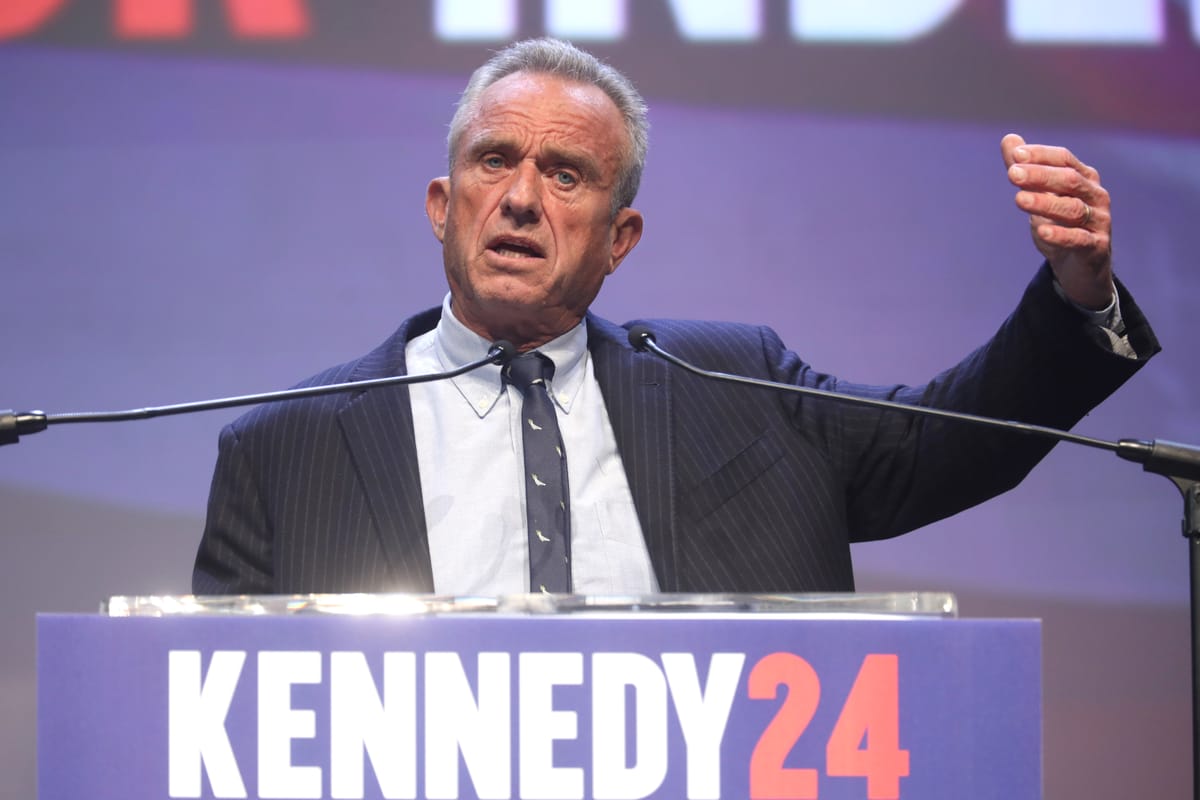Is Robert F. Kennedy Jr. the most important factor in the 2024 election?
|
Older messages
Biden's new immigration rule.
Thursday, June 20, 2024
Plus, a reader question about Supreme Court cases. Biden's new immigration rule. Plus, a reader question about Supreme Court cases. By Isaac Saul • 20 Jun 2024 View in browser View in browser
Our video on Juneteenth
Wednesday, June 19, 2024
A quick correction and our Juneteenth video. Our video on Juneteenth A quick correction and our Juneteenth video. By Isaac Saul • 19 Jun 2024 View in browser View in browser I'm Isaac Saul, and
The Supreme Court's bump-stock ruling.
Tuesday, June 18, 2024
Plus, we check in on the developments in Haiti. The Supreme Court's bump-stock ruling. Plus, we check in on the developments in Haiti. By Isaac Saul • 18 Jun 2024 View in browser View in browser A
The Supreme Court's abortion pill ruling.
Monday, June 17, 2024
Plus, a reader question about trans athletes at the high-school level. The Supreme Court's abortion pill ruling. Plus, a reader question about trans athletes at the high-school level. By Isaac Saul
The latest economic signals.
Thursday, June 13, 2024
Inflation appears to be cooling, but will it stick? The latest economic signals. Inflation appears to be cooling, but will it stick? By Isaac Saul • 13 Jun 2024 View in browser View in browser Photo by
You Might Also Like
A stark warning about Elon Musk
Friday, February 14, 2025
+ why chocolate prices will keep rising
🍿 ‘Rabbit Trap’ Falls Short Of Its Creepy Premise
Friday, February 14, 2025
Plus: Josh Ruben balances love and guts in 'Heart Eyes.' Inverse Daily Dev Patel stars in the atmospheric horror film without much atmosphere or horror. Sundance Film Festival Sundance 2025
Brain Tariffs
Friday, February 14, 2025
The Great Biopic Brain Drain // When Are Tariffs Good? Brain Tariffs By Caroline Crampton • 10 Feb 2025 View in browser View in browser The Great Biopic Brain Drain Callie Petch | Little White Lies |
The legal fight over DOGE's budget cuts.
Friday, February 14, 2025
Plus, how does Tangle decide who's on the right and left? The legal fight over DOGE's budget cuts. Plus, how does Tangle decide who's on the right and left? By Ari Weitzman & Tangle
☕ Diversing gears
Friday, February 14, 2025
DE&I rollbacks and supplier diversity. February 10, 2025 View Online | Sign Up Retail Brew It's Monday, and an excellent day to brush up on your rendition of “Singing in the Rain,” seeing as
💳 X marks the corruption
Friday, February 14, 2025
The billionaire's push to kill the CFPB followed his social media company's deal that might have been scrutinized by the agency. 🔥️ Today's Lever Story (full article here and attached
Gift of the Day: Amy Sedaris’s Favorite Flowers
Friday, February 14, 2025
Pink and purple carnations that last a long time. The Strategist Gifts Every product is independently selected by editors. If you buy something through our links, New York may earn an affiliate
☕ Made you look
Friday, February 14, 2025
Marketers took Super Bowl teasers to a new level this year. February 10, 2025 View Online | Sign Up Marketing Brew Presented by The Points Guy It's Monday. If you hit “snooze” on everything,
Ex-Ai2 scientists form stealthy AI startup, with former Ai2 CEO Oren Etzioni
Friday, February 14, 2025
Google Cloud hires Microsoft exec | Mark Cuban asks Bill Gates for input on Luka Dončiċ trade ADVERTISEMENT GeekWire SPONSOR MESSAGE: SEA Airport Is Moving from Now to WOW!: Take a virtual tour of
Tuesday Briefing: Trump’s new tariff fight
Friday, February 14, 2025
Plus, Kendrick Lamar's Super Bowl show. View in browser|nytimes.com Ad Morning Briefing: Asia Pacific Edition February 11, 2025 Author Headshot By Emmett Lindner Good morning. We're covering

